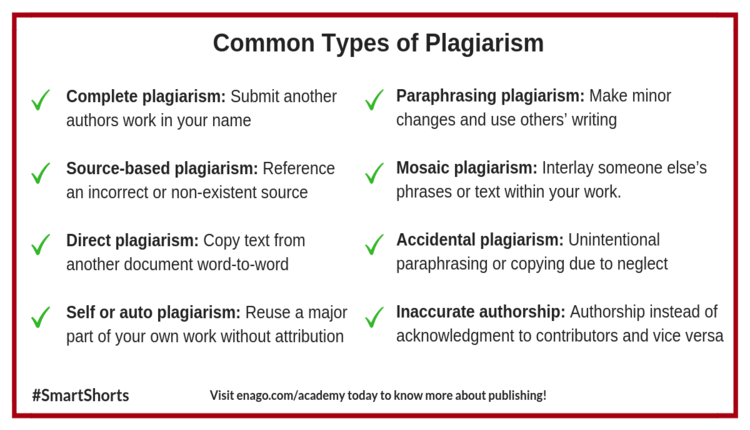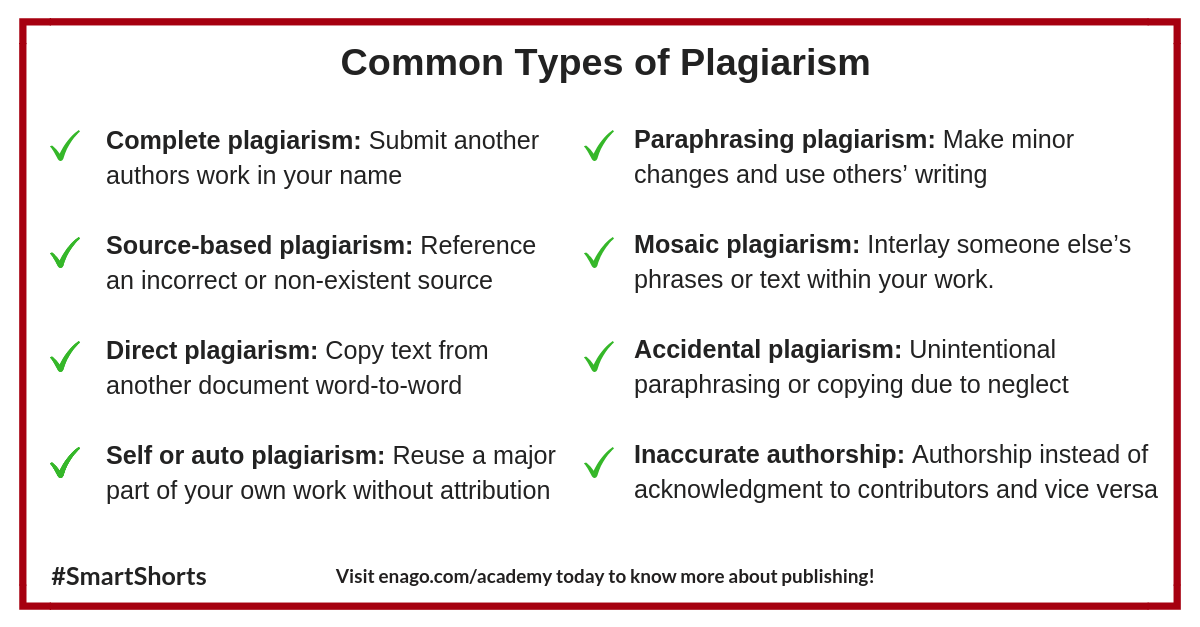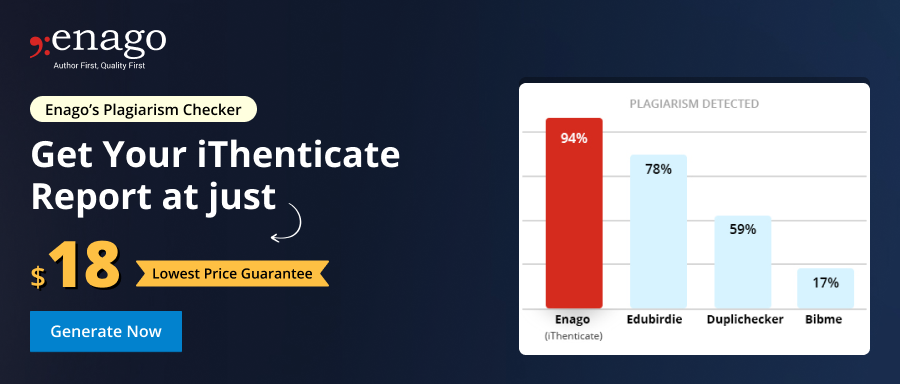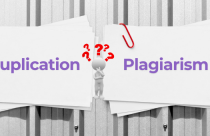Common Types of Plagiarism

Plagiarism, or passing someone else’s work as your own, is not a new phenomenon in research. It has gained greater attention with the advent of plagiarism check tools that have made it easier to uncover instances of plagiarism. Here are a few types of plagiarism that are most commonly observed in the STM publishing industry:

Complete Plagiarism
In this form of plagiarism, the author presents someone else’s work as their own. This is highly unethical and illegal as this amounts to outright intellectual theft.
Example: Submitting someone else’s manuscript or assignment as your own.
Implications: This is one of the most severe forms of plagiarism and often results in serious consequences including expulsion, legal action, and damage of one’s reputation.
Source-Based Plagiarism
In this form of plagiarism, the author cites inaccurate sources. These could either be non-existent, fabricated, or wrong attribution.
Example: Referring to a source that is completely fabricated and non-existent.
Implications: This type of plagiarism often misleads readers, discredits the author, ultimately compromising the integrity of one’s work.
Direct Plagiarism
As the name suggests, in this form of plagiarism, the author copies parts of text verbatim from a source without citing it properly.
Example: Copying text from articles without using quotation marks or proper citations.
Implications: This form of plagiarism is considered to be one of the most common types of scientific misconduct and can result in severe consequences including expulsion and damage of one’s reputation.
Self or Auto Plagiarism
In this form of plagiarism, the author reuses their previous work without proper disclosure.
Example: Submitting the same work for different purposes without proper attribution,
Implications: While this form of plagiarism is not intellectual theft, it can often be misleading. Self-plagiarism is accounted as scientific misconduct and could lead to similar consequences.
Paraphrasing Plagiarism
In this form of plagiarism, the author paraphrases the source text and presents it as their own without proper attribution.
Example: Paraphrasing research findings and presenting them as your own without proper citations.
Implications: This type of plagiarism often misleads readers and gives a false sense of ownership of content and ideas.
Mosaic Plagiarism
In this form of plagiarism, the author pieces together information collected from different sources and present it as their own without proper citations. This is also called as ‘patch writing’.
Example: Rephrasing information taken from multiple sources and presenting the content as one’s own without proper attribution.
Implications: This form of plagiarism is also considered a violation of academic integrity as the author fails to acknowledge the different sources from which the information is collected from.
Accidental Plagiarism
As the name suggests, this form of plagiarism is often unintentional as the author does not follow the guidelines due to lack of understanding of standard practices.
Example: Forgetting to include proper citation for the information taken from a specific source.
Implications: Despite being unintentional, this type of plagiarism is also considered as scientific misconduct and leads to the consequences similar to other cases.
Inaccurate Authorship
In this form of plagiarism, the authorship is faulty — either the authorship is provided to someone who did not contribute to the work or the authorship is not provided to someone who made a significant contribution to the work.
Example: Excluding a co-researcher’s name from the research article.
Implications: Inaccurate authorship often undermines trust among collaborators and damages the credibility and reputation of those involved.
It is important to check for plagiarism manually in addition to using online plagiarism checkers before submitting your work is helpful is upholding your academic integrity.
You can also read more about the different types of plagiarism here.










